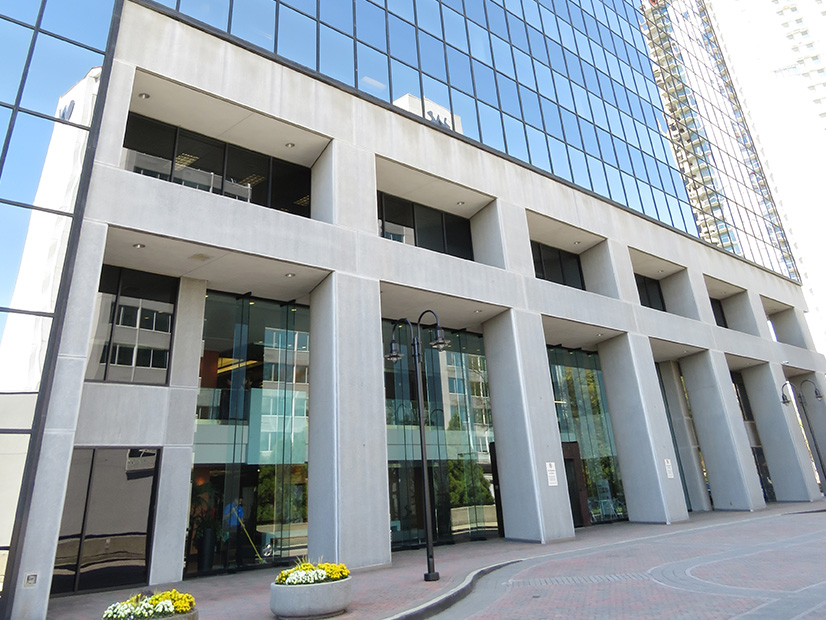NERC’s Reliability and Security Technical Committee (RSTC) this week agreed to endorse several proposed reliability standard projects that were previously rejected by it and NERC’s Standards Committee.
The committee’s endorsement of two separate standard authorization requests (SARs) to modify TPL-001-5 (Transmission system planning performance requirements) and one to revise MOD-032-1 (Data for power system modeling and analysis) means the SARs will now go to the Standards Committee for approval. If the Standards Committee grants its assent, work can officially begin on a standards drafting project.
Teams Submit Competing TPL-001 SARs
One of the TPL-001-5 SARs was proposed by NERC’s Inverter-based Resources Performance Working Group (IRPWG), while the other came from the System Planning Impacts from Distributed Energy Resources (SPIDER) Working Group. The first would clarify “terminology throughout the standard that is unclear with regards to inverter-based resources;” the second would revise the standard to better address distributed energy resources (DER).
It is not unusual for the Standards Committee to receive multiple SARs relating to the same standard. In such situations the committee often combines them into one project.
A previous SAR to modify TPL-001-5, supported by both IRPWG and SPIDER, failed to garner enough votes for endorsement at the RSTC’s meeting in March. (See “DER Standard Request Denied,” NERC RSTC Briefs: March 2-3, 2021.) Brian Evans-Mongeon of Utility Services Inc. was one of several members to raise concerns about the proposal, including that the SAR did not specify its applicability to non-bulk electric system devices.
SPIDER and IRPWG could still have proceeded to the Standards Committee for approval but elected to go back to the drawing board on separate proposals, working with the RSTC in hopes of identifying potential problems ahead of submitting them for endorsement. At this week’s meeting, SPIDER Chair Kun Zhu of MISO detailed the changes the working group made to its SAR, including:
- clarifying that transmission planners with minimal DER impact do not have to study DER contingencies under a threshold established by the standard development team (SDT);
- removing a statement that system peak net load is the most stressful condition;
- recognizing that DER modeling and study requirements are based only on data made available and are not dependent on any SARs to modify MOD-032-1; and
- removing recommendations related to inverter-based resources.
By contrast, the IRPWG’s SAR incorporated only one change based on feedback from the RSTC, removing a bullet from the section on the project’s scope that committee members considered overly broad. Otherwise, the working group’s leadership elected to leave the SAR intact despite members expressing concern on topics such as the lack of a section on applicable facilities, and the desire to include provisions for amending MOD-032 to better identify applicable entities.
Both of the SARs related to TPL-001-5 received endorsement, though Evans-Mongeon moved to delay a vote on the IRPWG SAR until no later than Jan. 15, stating that the agenda packets sent out before the meeting did not include all of the members’ comments. He and others had not had time to review all of the comments and IRPWG’s responses prior to the meeting, he said. However, his motion failed with 10 votes in favor, 14 opposed, and two abstentions; subsequently the IRPWG’s SAR passed with 24 votes in favor and two opposed, while the SPIDER SAR passed with 25 votes in favor and one abstention.
SPIDER Hopes for Standards Committee Reassessment
The MOD-032-1 SAR also revisits a previously rejected standards proposal, albeit one that got farther along in the development process. In this case the Standards Committee voted last year to end Project 2020-01, SPIDER’s previous attempt to update the standard, on the grounds that the project’s SDT had not done enough to respond to concerns raised by industry during the informal comment period. (See “SAR Rejected over Industry Concerns,” NERC Standards Committee Briefs: Dec. 9, 2020.)
The committee’s grounds for rejecting the project led SPIDER members to vent their frustration and confusion at a subsequent meeting, with many arguing that the negative comments didn’t truly represent industry sentiment. Some RSTC members also expressed concern over whether the negative comments had been fully addressed. However, others — including NERC Chief Engineer Mark Lauby — agreed with SPIDER that if “enough people don’t come back and say that [they] like it, it looks as if everybody’s against it.”
To avoid more wasted effort, the RSTC voted to endorse the SAR and send it to the Standards Committee along with several “technical justification documents,” including a letter from RSTC and SPIDER leadership explaining the decision to resubmit the project and the changes incorporated into the new proposal.




